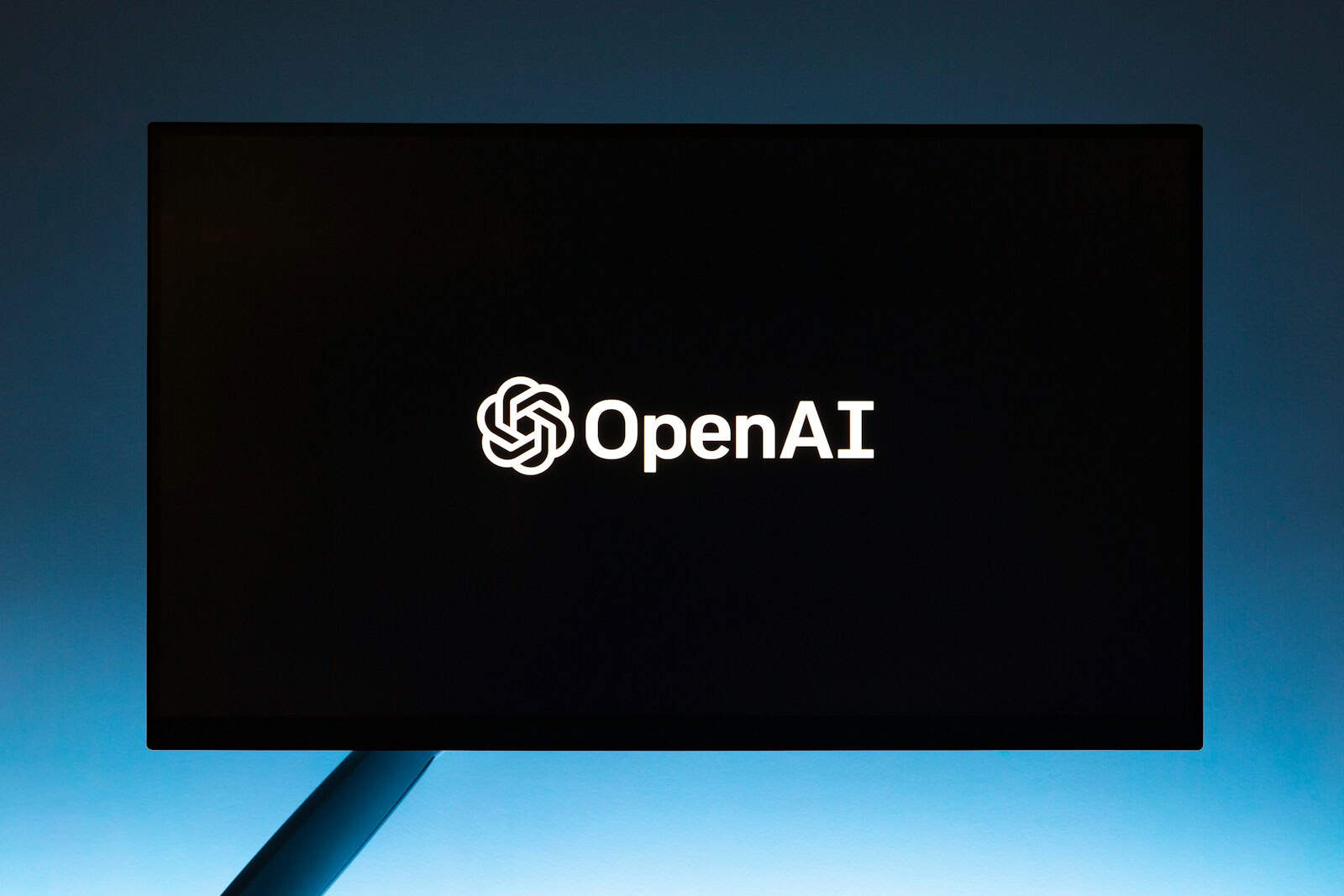OpenAI has bought the domain name Chat.com, which has led many to think that they might change the name of ChatGPT. This purchase is an important step in the tech industry. They acquired the four-letter domain from Dharmesh Shah, the co-founder of HubSpot. This move helps strengthen OpenAI’s presence in chat technology.
Chat.com has been around since 1996. OpenAI has not revealed how much they paid for the domain, but Shah previously bought it for $15.5 million. This shows how valuable domain names are in tech. Right now, Chat.com redirects to ChatGPT, OpenAI’s popular AI chatbot. This action aligns with OpenAI’s focus on chat-based AI and could mean they plan to expand their services under a more memorable name.
OpenAI’s Strategic Domain Acquisition
OpenAI, the leading artificial intelligence research company, has recently acquired the domain name Chat.com. This strategic move signals a potential rebranding of their popular language model, ChatGPT, and a broader push towards more accessible and user-friendly AI communication tools.
Why Chat.com?
The acquisition of Chat.com is a significant step for OpenAI. This simple, memorable domain name has broad appeal and aligns perfectly with their mission of making AI accessible to everyone. It’s easy to remember, easy to type, and clearly conveys the purpose of their technology: facilitating human-like conversation through artificial intelligence.
Rebranding ChatGPT
While OpenAI hasn’t officially confirmed a rebranding, the acquisition of Chat.com strongly suggests that ChatGPT might be getting a new name and a fresh online identity. This rebranding could simplify their product offerings and make it easier for users to understand and engage with their AI chatbot.
Implications for the Future
This move indicates OpenAI’s commitment to expanding the reach of their conversational AI. A more streamlined brand and a user-friendly domain name like Chat.com could attract a wider audience. This could lead to increased adoption of their technology in various applications, from customer service and education to entertainment and personal assistance.
The Evolving Landscape of AI
OpenAI’s acquisition of Chat.com reflects the rapidly evolving landscape of artificial intelligence. As AI becomes more sophisticated and integrated into our daily lives, companies are vying for user attention and brand recognition. A clear and memorable domain name like Chat.com gives OpenAI a strong advantage in this competitive market.
OpenAI’s Acquisition of Chat.com: Key Takeaways
| Aspect | Details |
|---|---|
| Domain Name | Chat.com |
| Purpose | Potential rebranding of ChatGPT and increased accessibility. |
| Implications | Wider reach, broader adoption, and brand recognition. |
| Market Impact | Reflects the competitive landscape of AI and the importance of user-friendly branding. |
Key Takeaways
- OpenAI acquired the Chat.com domain, boosting its brand in AI chat technology
- The domain’s previous sale price exceeded $15 million, showcasing its high value
- Chat.com now redirects to ChatGPT, hinting at OpenAI’s strategic branding efforts
Acquisition Overview
OpenAI’s purchase of Chat.com marks a significant move in the tech industry. The domain acquisition highlights the company’s strategic positioning and potential brand evolution.
Strategic Importance of Chat.com
Chat.com holds immense value as a premium domain name. Its short, memorable nature aligns perfectly with OpenAI’s focus on conversational AI. The domain’s simplicity makes it easy for users to recall and type directly.
OpenAI likely sees Chat.com as a key asset for future growth. It could serve as a standalone platform for AI-powered chat services or redirect users to ChatGPT. The domain’s broad appeal extends beyond tech-savvy audiences, potentially attracting new users to OpenAI’s products.
The purchase price, reported to exceed $15 million, reflects the domain’s perceived worth. This investment signals OpenAI’s commitment to establishing a strong online presence in the AI chat space.
Potential Impact on OpenAI’s Branding and ChatGPT
Acquiring Chat.com could reshape OpenAI’s brand identity. The domain name aligns closely with ChatGPT, potentially becoming its new home or a complementary service. This move may simplify user access to OpenAI’s chat products.
The domain could boost ChatGPT’s visibility and accessibility. A direct, easy-to-remember web address might increase traffic and user engagement. It also positions OpenAI as a leader in AI-driven chat interfaces.
Chat.com might serve as a launchpad for new AI chat products or features. Its broad scope allows OpenAI flexibility in expanding its chat-based offerings beyond the current ChatGPT model.
Partnerships and Market Influence
OpenAI’s acquisition of Chat.com highlights the company’s strategic collaborations and growing industry clout. This move showcases the interplay between tech giants and their impact on the AI landscape.
Collaboration between OpenAI and HubSpot
OpenAI’s purchase of Chat.com from HubSpot founder Dharmesh Shah marks a significant partnership. The deal, reportedly worth over $15 million, demonstrates the value placed on premium domain names in the tech industry.
Shah’s willingness to sell the domain to OpenAI suggests a cooperative relationship between the two companies. This collaboration could lead to future joint ventures or integrations between OpenAI’s AI technologies and HubSpot’s marketing software.
The transaction also highlights the interconnectedness of the tech ecosystem. High-profile deals like this often pave the way for broader partnerships and knowledge sharing.
Influence of High-Profile Stakeholders
OpenAI’s CEO Sam Altman played a key role in the Chat.com acquisition. His announcement of the purchase on social media generated significant buzz in the tech community.
Altman’s leadership and connections have been crucial to OpenAI’s rapid growth and increasing market influence. His ability to secure high-value assets like Chat.com reflects the company’s strong position in the AI industry.
The involvement of prominent figures like Altman and Shah in such deals can shape market trends. It often leads to increased interest from investors and potential partners in AI and related technologies.
OpenAI’s expanding network of influential stakeholders strengthens its position as a leader in generative AI and large language models (LLMs). This growing influence could lead to more strategic acquisitions and partnerships in the future.
Frequently Asked Questions
OpenAI’s acquisition of the Chat.com domain has sparked numerous questions about its strategic implications and potential impact on the AI industry. This purchase raises important considerations about OpenAI’s future plans and the evolving landscape of conversational AI technologies.
What is the strategic significance of OpenAI purchasing the Chat.com domain?
The Chat.com domain gives OpenAI a powerful online presence. This short, memorable domain name aligns perfectly with OpenAI’s focus on conversational AI. It may help OpenAI establish ChatGPT as the go-to platform for online chatting and AI interactions.
The domain could become a central hub for OpenAI’s services. It provides a simple, intuitive web address for users to access ChatGPT and other AI tools. This strategic move may strengthen OpenAI’s brand recognition in the competitive AI market.
How might this acquisition by OpenAI impact the future of conversational AI technologies?
OpenAI’s purchase of Chat.com signals a strong commitment to conversational AI. This high-profile domain acquisition may spur increased investment and innovation in the field. Other companies might accelerate their own conversational AI projects to keep pace with OpenAI.
The move could lead to wider adoption of AI chatbots. A user-friendly Chat.com interface might make AI interactions more accessible to the general public. This could drive rapid advancements in natural language processing and AI understanding.
What are the potential business models for OpenAI with the Chat.com domain?
OpenAI could use Chat.com to offer premium AI services. They might introduce subscription-based access to advanced chatbot features or specialized AI assistants. The domain could also host a marketplace for third-party AI applications built on OpenAI’s technology.
Advertising could be another revenue stream. Chat.com’s potential high traffic could attract advertisers seeking to reach AI-savvy users. OpenAI might also explore partnerships with businesses to provide custom AI solutions through the Chat.com platform.
How does OpenAI’s acquisition of Chat.com align with its partnership with companies like HubSpot?
The Chat.com purchase may enhance OpenAI’s collaborations with partners like HubSpot. It could provide a neutral platform for integrating AI capabilities into various business tools. Partners might leverage Chat.com to offer AI-powered customer service or marketing solutions.
This acquisition might also open doors for new partnerships. The high-profile domain could attract more companies interested in integrating OpenAI’s technology into their products. It may serve as a showcase for the potential of AI in diverse business applications.
Can you explain the technical advantages for OpenAI in acquiring a domain like Chat.com?
Chat.com offers technical benefits for OpenAI’s infrastructure. The short domain name reduces latency in API calls and improves overall system performance. It simplifies the process of setting up secure connections and managing SSL certificates.
The domain’s simplicity also enhances user experience. It’s easy to remember and type, which could increase direct traffic to OpenAI’s services. The clean URL structure can improve search engine optimization, potentially boosting OpenAI’s online visibility.
What has been the broader industry reaction to OpenAI’s purchase of the Chat.com domain?
The tech industry has taken notice of OpenAI’s bold move. Many see it as a sign of OpenAI’s ambition and financial strength. Competitors may feel pressure to secure their own strategic domain names or boost their AI development efforts.
Investors and analysts view the purchase positively. It demonstrates OpenAI’s commitment to long-term growth and market dominance. Some speculate this could be a precursor to new product launches or a potential public offering in the future.







